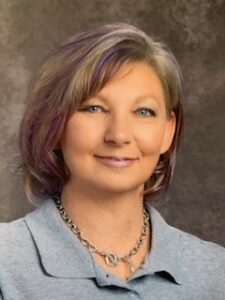
Tommie Polite
Award-winning Educator Reflects on her Experiences
with Delaware STEM
Tommie Polite placed 2nd in 2023 at the 9th running of the Delaware STEM Educator Awards in the certified middle school category from Seaford Middle School. Polite has been teaching 8th grade math since 2022 at Seaford Middle School in Sussex County. In the Fall of 2024, Polite will transition to Cape Henlopen School District where she will be teaching 9th grade math at the high school. Polite’s passion for mathematics knows no bounds including using her award funds to support her students by buying supplies such as whiteboards and more books.
What challenges and opportunities do you see in teaching STEM and specifically Illustrative Mathematics from Open Up Resources in Delaware?
The biggest challenge is making content applicable to the students. Too often when you hear the word STEM, you automatically think Science and Technology. Very rarely do most push through the acronym to the ‘M’. They’re thinking about electronics and engineering or science and the ‘trial and error’ methodology, but I don’t think that everyone thinks right away math has a lot to do with STEM or specifically with the trial-and-error method.
Math is a great reminder that answers are not black and white exclusively. There is a lot of gray. For example, just because you produce the wrong answer, doesn’t mean that it’s the “wrong” answer. Every time it’s “wrong” is an opportunity to think through the problem on a deeper level. This process is often more important than determining whether or not it was a right or wrong answer.
So, when it comes to the challenge and even to the benefits of math, for me, illustrative mathematics, or any platform that approaches computation as a problem-based resource program, creates the opportunity for kids to become engulfed. This is key because too many students struggle in middle school math because the approach to problems and the examples have not kept pace with the changes in students’ lives. For example, a lot of the problems are being written by people who are much older in age and aren’t seeing the disconnect with younger learners. Textbooks, too often, have problems about money. That, on its face, might seem normal but the problem is that nobody uses money anymore, no one uses coins, no one uses dollar bills.
So, when I encounter a word problem that begins ‘you have coins in your pocket, they’re all quarters…’, I just sigh because the students don’t know what a quarter is anymore. That’s not to say that I think they can’t know or learn what coins are, but rather that it’s not relevant anymore. This is where I see the real benefit of illustrative mathematics. I think in general being a problem-based learning program is huge for supporting STEM education. But it has limitations to today’s kids.
Usually, the only way that we really make a connection between math and real-world applications is through travel. For most of the students it is likely they have traveled with the use of an E-ZPass somewhere. They know that E-ZPass is prepaid and I ask the students, ‘well, how do they get paid for?’ And they know that it’s connected to a wireless bank account. And I ask ‘well, who puts money in the bank account?’ and suddenly there’s all these connections in the students’ eyes. But often times educators really need to walk through these connections
Unlike some other disciplines, students learn math from repetition and if you don’t give them repetition, they don’t remember. If you focus just on telling the students, ‘It’s going to be gone the next time’ you add something new. Using a program like Illustrative Math is a nice merge between the two when they have that problem-based learning but they also have the ability to practice the fluency and memorization parts.
How did the Desmos Application prelude play a role in your approach to using STEM to solve real world problems?
Desmos was huge for me with COVID, mainly because it gave me a platform where I could see kids working in it from home and in class. It was great for a hybrid situation that became so common during that time.
I could communicate with the kids at-home and the kids in-class using the same material. I could show 20 kids work and easily go back and forth between students in different locations to teach the same lessons. For example, when we were doing linear functions, if they changed the coefficient, they could see how it directly affected the steepness of the line. Technology like this is instrumental for teaching math – especially when I have limited time with each kid. Students can manipulate the illustration, play with it, change it and help them build understanding of what the coefficient does, etc. That was huge and I think Desmos is a masterful inclusion.
So now Illustrative Math will be taught, using Amplify, which is what I believe Seaford is going to do this year with their honors program.
Does agriculture or Science, Technology, Engineering, Agriculture, and Mathematics (STEAM) play into your lessons? There’s a lot of STEM that goes on in agriculture in Delaware.
Honestly no. I would love to say yes, but we are so forced to focus on pacing and the curriculum, we don’t get a lot of chances to involve outside resources. Even this year, I know going into my new position, it’s an A B schedule. I get three classes a day that I’m teaching and on that A B schedule I get 90 minutes, but I’m expected to do two lessons in that one day instead of the two days.
So, squeezing two lessons into 90 minutes is going to take every available minute. When would we have time to add in those STEM opportunities where I can do some cross-curricular components, where I’m adding in some science or some agriculture? It can be challenging. I have taken the opportunity to work with our agriculture teacher and with our science teachers in the past in order to maximize similar vocabulary usage. For example, working with the other teachers to remind the students that ‘hey, you’ve done this in math class’ when they’re already in science class and they’re building a graph to represent their theoretical data. But overall, the opportunities in class and the time constraints make these collaborations challenging.
What are some of the creative lessons you used in 2023 to introduce and include students with diverse backgrounds or who have learning needs that must be met in different ways? For example, “I can’t do math or math is not for me”.
I would bring in the Desmos activities, the online programs. When I’m getting kids from different levels of knowledge, I have a lot of online programs that help. We have kids that have made it through 3rd grade in their home country, and come here and they’re in 8th grade math. Alternatively, I have kids who have disabilities that need very focused attention, who are autistic, or others who are great at math, but cannot read. In general, the biggest way to make an impact is to use technology, because I can program technology to support them where they need to be supported. Especially when you can also engulf that 8th grade student with the idea that it’s a video game. The moment that engulfed feeling in math happens the students then keep trying different approaches until they finally find one that makes the concept make sense to them.
I use Prodigy a lot. Anytime they finish a classroom assignment and they have free time, they know they’re going on to Prodigy. I always have standards that are programmed into Prodigy, but if they finish early, Prodigy automatically puts them into something that they need to practice.
For example, if I know I have a student coming in at a 3rd grade level, I won’t put them in an 8th grade level on Prodigy. Instead, I’ll put them at the 3rd grade level. So, then in the classroom they’re learning at 8th but I’m addressing their lack of abilities through a different program that nobody else knows about. This format offers anonymity and repetition, and other students won’t know what they’re working on.
What recommendations do you have for other educators? Either looking to teach STEM in the state or looking to apply to the Delaware STEM Educator Awards?
Anyone who is truly motivated should apply – even if they don’t always see how they fit into STEM. There is actually someone I am encouraging to apply for the Award. As a science teacher, and to me, what she does is so amazing because she’s all about having the students figure things out for themselves. Ironically enough, she never wanted to be a teacher. She completed a degree in forensic science. But was told after graduation that she can’t go into forensic science unless she works for the police department in Delaware for five to ten years.
But she genetically was predisposed to not be able to make the academy. She’s physically incapable of being a police officer. When she found that out, she was like, ‘well, that just dashed all of my dreams’. She switched to education and took the ARTC, the alternative to teaching certification, to become a science teacher. Her ability to connect in science is so amazing while also off the beaten path. I’m going to help her do the application and help her find that motivation. Hopefully she’ll do it with me, but I think, in-general we need to get people to understand what it means to actually do STEM.
“I don’t think everybody really fully understands the depth that STEM has
in connection to all of our real lives.
I want to illustrate what the ‘M’ in STEM looks like.”
Truth be told as a math teacher; I did not relate myself to STEM until after I was nominated for the presidential STEM award. I had no idea what I was doing was that important. I knew math was math. I knew what the ‘M’ stands for, of course. The problem is how does math relate to STEM? I think there is a disconnect there sometimes.
What was your experience winning the Delaware STEM Educator Awards?
I was completely in awe. First of all, I felt so validated as a math teacher. I knew math was important and I knew it was important to me. I knew what I was teaching, my kids were important, but when other people recognized it, I started looking at myself as more than ‘that teacher who gets paid less than everyone else in the entire world’. I wasn’t just the teacher standing in a room that gets left alone until it’s time for an observation or communicating with parents and explaining why I can’t give their kids a passing grade. It became something more. It became an opportunity for me to say, ‘wow’, I am good at what I do and I am proud of myself. And I worked hard to get here. It made me really reflect on what I was doing in the classroom and I think it makes me think any time that you get recognition, it makes you a better teacher moving forward.
Having said all that, I wish there were more opportunities to recognize teachers for what they do because we have so many teachers who are there just for the paycheck because they are so burned out and they’ve done it for so long that they just get told this isn’t enough, here’s more on your plate. There’s so many things out there that bring you down as an educator. Those little pieces that lift you up just don’t happen enough. I used to watch Dr. Phil all the time and one of the things he says is that ‘an attaboy is only as good as the number of negatives that have been put before it’. We just need more positives surrounding our educators. And we don’t have that, so, winning that award validated me. The monetary part that was huge too. Obviously any educator who’s worth their salt is putting that money directly back into their classroom and technology for the future.
What did you end up doing with the funds from winning the Award?
I bought more whiteboards so that I could do vertical surfaces in the classroom to go with building mathematics thinking classrooms. Whiteboards that I could hang on the walls. I also bought whiteboard dots that I could stick on the desks. I wanted the students writing on anything that wasn’t paper so that they could just get what they’re thinking down and know that it’s not a permanent solution. Nothing in math is permanent if you erase it and put a different number, the answer is different. I was really engrossed in the idea that building mathematics and building thinking classrooms through mathematics. I also bought five new books to read so that I could focus on including more direct questioning with math – so that I could get kids thinking mathematically. And, did I use a little of the award funds for myself? Of course, of course.
What’s next for you and what’s next for STEM at Seaford Middle or Cape Henlopen High.
At Seaford middle, the plan was to incorporate the new math curriculum, Amplify, which should encompass some STEM components. Technology is a huge addition in STEM, as well as being able to use that technology to manipulate mathematics.
I don’t know what that looks like yet. I don’t know where the curriculum is moving to in the high school. I’ll be teaching freshman algebra, so a lot of what I used at the middle school level should be translatable.

The wall of middle school agriculture presentations from the DE State Fair
where the interview with Tommie Polite took place.
What role does educational or instructional tech play in the classroom in the future for you?
Oh, huge aspects. Huge. It does so much at reaching students who are above level or below level, even at level. Giving them the additional practice time and the ability to really build their understanding of the application is huge. Being able to manipulate the different parts and pieces of variables in mathematics has also been huge. So, I think technology and the adaptability to add that technology into the classroom is always going to be huge.
Much of this came to a head during COVID in 2019 when I signed up for my master’s program in applied technology. The thinking at the time was ‘what better time am I going to need this than right now?’ It was about using online based programs and online support. All of these games and ways to practice mathematics – and now having no limitations in applying them in a classroom setting – was groundbreaking. When I started the applied mathematics, applied technology program, I was able to start utilizing a lot of what we were doing with the COVID restrictions anyway. As I went into the program I started Googling and researching ‘are there programs out there that already have illustrative mathematics preloaded? Are there other teachers out there who are loading a lecture of math lessons into a Desmos platform so that we could do slides on the screen remotely?’. COVID, in some ways, forced many of these conversations.
I feel like Technology is the easiest way to level out that platform but also strategic grouping, like just having strategic grouping with kids in the classroom, having a problem-based curriculum, allows you to put students who are not as high up with other kids who are high up to kids learning from each other. They’re not going to listen to me as well as they’re going to listen to others, especially their peers.
—
Seaford Middle School: Part of the Seaford School District, the Seaford Middle School, located at 500 East Stein Highway Seaford, DE 19973
Delaware STEM Council: Delaware STEM was created to evaluate the state of STEM education in our schools and recommend ways to improve it. Our goals are to:
- Expand the number of Delaware students who ultimately pursue advanced degrees and careers in STEM fields and broaden the participation of women and minorities in these fields.
- Expand the STEM capable workforce to create, grow and attract STEM related businesses to Delaware.
- Increase STEM literacy for all Delaware students including those who pursue non-STEM related careers, but need STEM skills.

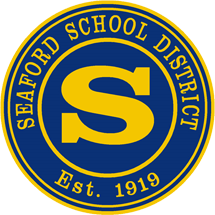
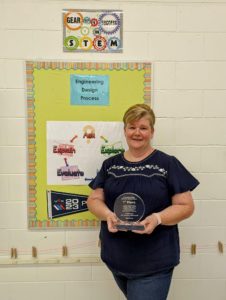
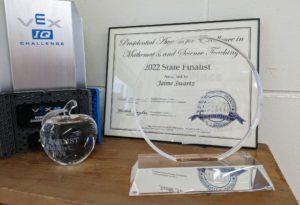

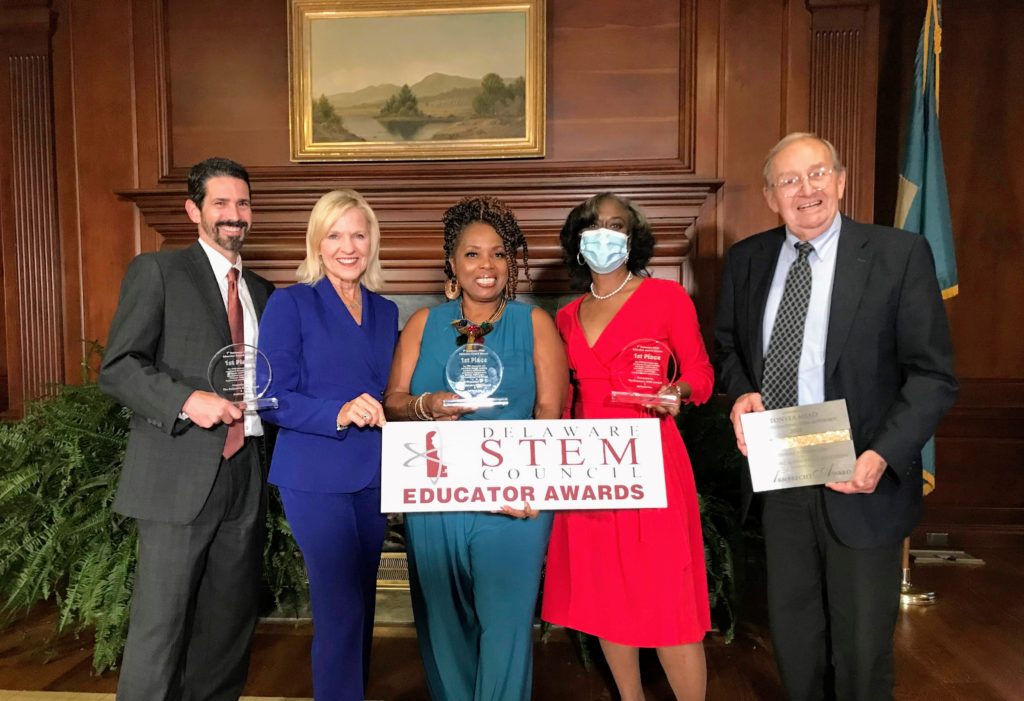

Recent Comments